Movie Review – Apostle
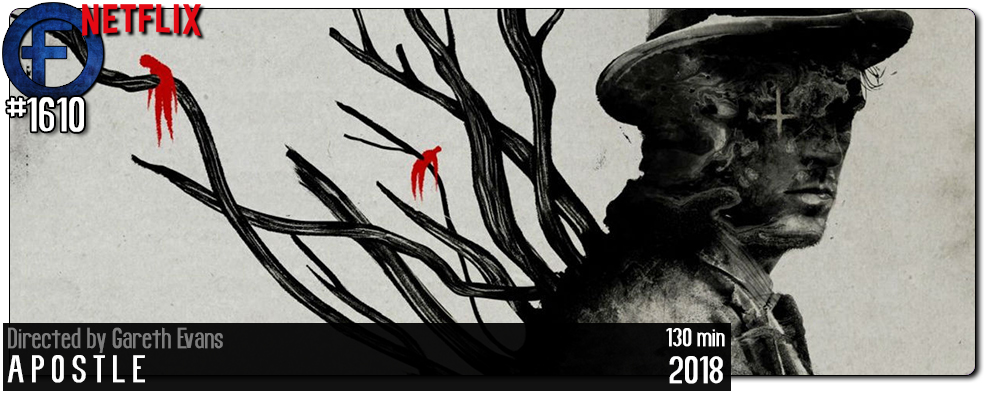
Principal Cast : Dan Stevens, Michael Sheen, Lucy Boynton, Mark Lewis Jones, Paul Higgins, Bill Milner, Kristine Froseth, Elen Rhys, Sharon Morgan, Sebastian McCheyne.
Synopsis: In 1905, a drifter on a dangerous mission to rescue his kidnapped sister tangles with a sinister religious cult on an isolated island.
****
Despite several near misses, Netflix’ run of horror in recent times has been more than competent, what with films such as 1922, Cargo, Hold The Dark and Gerald’s Game all finding praise in many quarters for uncompromising adult film-making. Acclaimed Raid director Gareth Evans, not a man noted for his work in the genre, turns to an early period setting for his religious-themed blood-splatter fest, as Dan Stevens’ archetypal Everyman hero ventures into the lions den of hypocrisy to save his kidnapped sister from an evil cult. Atmospheric, directed with virtuosity, and filled with a deep rooted sense of sinister creep, Apostle will startle and terrify throughout its carefully laid story of degeneracy and hopelessness.
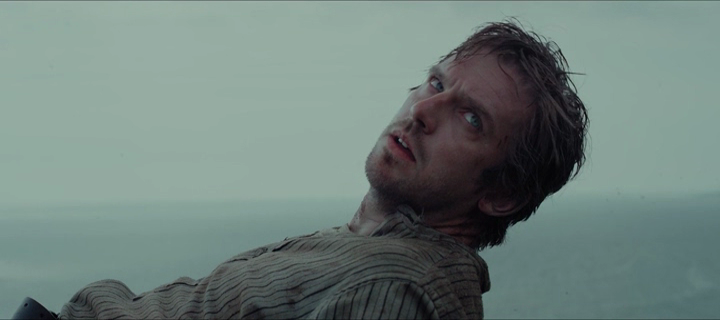
Itinerant drifter Thomas Richardson (Dan Stevens – Beauty & The Beast) travels to a remote Welsh island under the pretence of joining a religious order run by Prophet Malcolm Howe (Michael Sheen – Twilight: Breaking Dawn), who, together with his two brothers (Mark Lewis Jones and Paul Higgins) have set up a colony to “escape” from imprisonment. His secret mission is to rescue his kidnapped sister, Jennifer (Elen Rhys), who was taken in order for Howe to blackmail her husband, whom has become nonsensical with her absence. On the island, Thomas meets young Jeremy (Bill Milner – X-Men: First Class) and his girlfriend Ffion (Kristen Froseth), and uses them to learn more about Howe and the hidden location of his sister. Howe’s daughter, Andrea (Lucy Boynton – Sing Street), is suspicious of Thomas, although his integration into the cult appears to her to be legitimate. As he experiences the true evil of Howe’s religious fervour and rising desperation – the crops and fields of the island are all barren, and food scarcity has prompted the extreme measures by Howe and his family – Thomas soon comes to realise that the hidden malevolence behind the island’s true nature may remain hidden no longer.
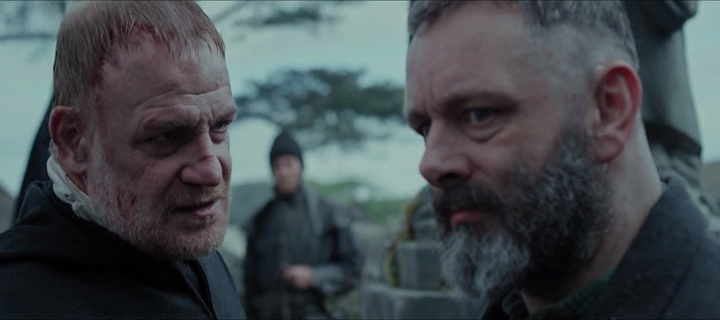
At its heart, Apostle is a film about flawed humanity. The evil and cruelty of men, driven by survival and rage at a society they perceive has oppressed them, now riven with rage as their self-made “utopian” lifestyle finds itself under threat from external forces, is Apostle’s creed (ha!) if you will. Writer/director Evans, eschewing the stylish butchery of the Raid films that made him famous, brings a grisly sensibility to proceedings that makes for effective, if not always rewarding viewing. While the story itself isn’t particularly unique, nor the period setting far from what we saw in, say Shyamalan’s The Village or even Robert Eggers’ The Witch, with its insular and cloistered community of characters involved in some pretty scary terror, Apostle’s grimy visual style and magnificently creepy score (more on this in a moment) elevate a cluttered, meandering script and semi-developed characters beyond what may have felt generic on the page.
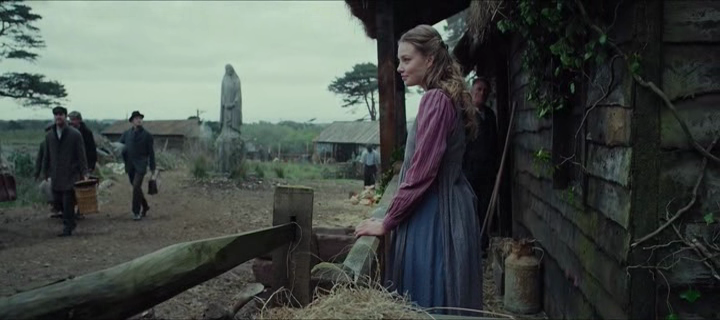
Evans’ direction is strong, with a keen-edged visual tenacity, dealing less with the intellectual side of the film’s premise and more with carving a scary, bloody, brutal nightmare out of the screen. This isn’t a fast-paced action film, but a slow buildup of gradually rising bile in the pit of your stomach, with thoroughly unpleasant characters (Stevens’ Thomas included) engaged in subterfuge, deception and revenge, as Thomas attempts to salvage his sisters life from these awful men. Apostle’s ability to mimic other horror films notwithstanding, Evans captures the isolated feelings of despair and deprivation as Thomas’ gradual insertion into the cult continues onward, despite the efforts of Howe and his brothers in uncovering the identity of the one who has supposedly arrived with the blackmail money. Ratcheting terror gives way to abject supernatural horror as Evans turns up the chills, with the revelation of a malignant entity hidden from the village by Howe, and one that brings with it a turning point for a film that, when it happens, take on a whole new level of fear.
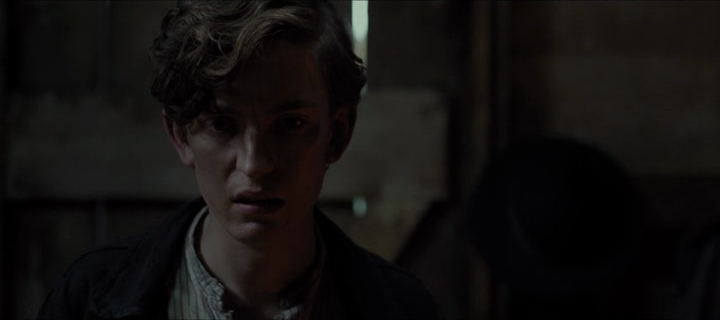
As with any great film, the villain is key. Dan Stevens’ competent faithless anti-hero Thomas, a drug-addled pauper sought by his sister’s lawyer to rescue her, himself has to deal with feelings against organised religion due to an experience in China, and while he has his flaws and self doubt he’s still a good man trying to do the right thing. Lucy Boynton’s morally torn Andrea, balancing the beliefs of her father and the knowledge of her own understanding, is sufficient enough to give width to Thomas’ story, but hardly a challenge for the young Miss Potter actress. Bill Milner and Kristen Froseth make sweet young lovers and innocent lives ripped asunder by love and hate, while co-stars Mark Lewis Jones and Paul Higgins play menacing and scurrilous side acts for Martin Sheen’s unscrupulous Howe. And it’s in Sheen that Apostle thrives, with the actor bringing solemnified, sanctimonious bile to a performance that sorta-slides into histrionic parody but only momentarily. Sheen’s natural screen presence and charismatic sense of insular truth makes Howe as demonic a presence on the island as any actual demons, a belief in his actions overriding sense and reason. Jones may take some of the lion’s share of gravitas and oozing muscularity, but it’s Sheen’s riveting performance that anchors the film’s inbuilt horror.
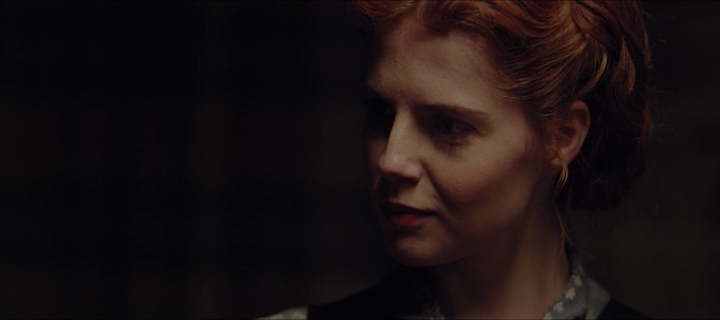
It should be said that one of Apostle’s most memorable aspects is its pulsating, creepy score. Composers Fajar Yusekemal and Aria Prayogi deliver a musical accompaniment that revolutionises horror film scores, a lilting, piercing, schizmic work that elicits the exact amount of emotional impact from a scene. From screeching strings to blasting horns, racketing drums and all manner of unknown sounds, Yusekemal and Prayogi’s hugely suitable score is one that marries to the visuals with an inextricable grace, despite the bloody contents of the story. Cinematographer Matt Flannery gives the film a desaturated greyness, lensing the movie with a beautiful, suffusive poetry, contrasting the horror with the beautiful Welsh landscapes the film is set in. It would appear that much of the film is lit by natural light (probably incorrect, but thinking this gives me joy) and many of the interior scenes, set inside wooden huts on the island, are dim and broodingly dungeon-esque, mirroring the dark places of the human heart thematic to this material.
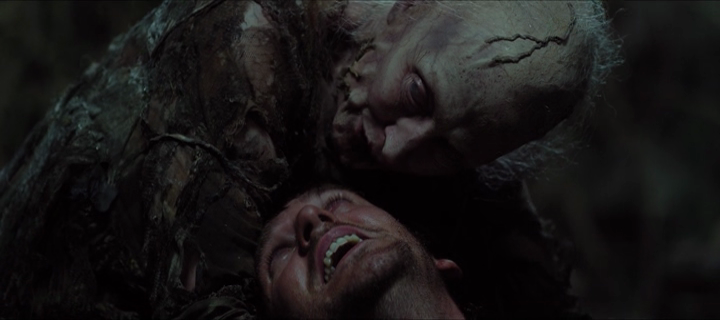
Apostle is a grisly, brutal watch. It pulls no punches and offers little salvation beyond its credits. There’s bloody horror aplenty, both the insidious and the practical, the supernatural and the natural. It’s frightening not just aesthetically but also narratively, a nightmarish gulag of inescapable torment sluiced by fervent control and parasitical belief structures. Not for the squeamish, Apostle’s gripping bloodlust and genuinely horrific plot are a deep dive into bad dream territory, and for genre fans you’ll be well satisfied with what the film offers.

